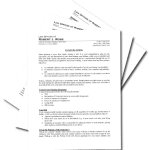Best Elder Law Lawyers in Illinois
Share your needs with us, get contacted by law firms.
Free. Takes 2 min.
Or refine your search by selecting a city:
List of the best lawyers in Illinois, United States
United States Elder Law Legal Questions answered by Lawyers
Browse our 2 legal questions about Elder Law in United States and read the lawyer answers, or ask your own questions for free.
- Hi, I like to get the information about my deceased sister government pension in Sind Govt.
- I am living in usa and my sister was the govt employee in pakistan about 25 to 27 years. she was unmarried and my parents also passed. I like to know who will the benifits after her death. She passed during her job. I really appreciate it if you guide... Read more →
-
Lawyer answer by A A Abdullahi Law Firm
Hello, Her next of kin will be you and so you shall be the one to receive the benefits and her properties. You can contact us vfor assistance on the documentation and procession
Read full answer - How to protect property from squatters law
- Deed in my mom's name. She died 18 years ago. Son is named as administrator but not as owner. We live in USA so let Non relative live there for 45-50 year but had no formal contract. Let him live there free as long as he paid utilities and taxes.... Read more →
-
Lawyer answer by M BILAL ADVOCATES, CORPORATE & TAX CONSULTANTS
After completing probate to establish yourself as the legal heir, you can transfer the property title to your name and then grant them permission to reside there through a formal agreement. It is worthy to note that you can do...
Read full answer
About Elder Law in Illinois, United States
Elder Law is a specialized area of legal practice focused on issues that affect older adults and their families. In Illinois, Elder Law encompasses a variety of legal matters related to aging, including estate planning, long-term care arrangements, guardianship, public benefits, and elder abuse protection. The purpose of Elder Law is to ensure seniors' rights are protected and their needs are met within the framework of state and federal law.
Why You May Need a Lawyer
People often seek the help of Elder Law attorneys in Illinois for several reasons. Common situations include drafting or updating wills and trusts, planning for long-term care and Medicaid eligibility, addressing concerns about financial exploitation or elder abuse, resolving guardianship or power of attorney issues, and navigating complex public benefits or healthcare matters. A lawyer can provide guidance to help avoid costly mistakes, prevent disputes, and make informed decisions that protect your or your loved one's interests.
Local Laws Overview
Elder Law in Illinois is shaped by a combination of state statutes, court decisions, and federal regulations. Key aspects include:
- Estate Planning: Illinois law sets requirements for wills, trusts, and powers of attorney. The Illinois Probate Act directs how estates are administered and distributed if there is no will.
- Guardianship: Illinois courts may appoint guardians for adults who cannot make personal or financial decisions, under the Illinois Guardianship and Advocacy Act.
- Medicaid Planning: The Illinois Department of Healthcare and Family Services administers Medicaid. Eligibility for long-term care may require careful planning to avoid disqualifying asset transfers.
- Elder Abuse: The Adult Protective Services Act provides pathways to protect seniors from abuse, neglect, or financial exploitation. Reporting requirements and procedures are in place for suspected cases.
- Long-Term Care: Illinois has laws for nursing home regulation, residents' rights, and care standards, enforced by state agencies.
- Advance Directives: Illinois recognizes various advance directives, including powers of attorney for healthcare and living wills, to ensure individuals' preferences are honored.
Frequently Asked Questions
What is Elder Law and how does it differ from other legal areas?
Elder Law focuses on legal issues affecting seniors, such as estate planning, healthcare, long-term care, and protection from abuse. Unlike other areas, it integrates various fields including real estate, family law, and public benefits to address the unique needs of older adults.
When should I consider consulting an Elder Law attorney in Illinois?
You should consult an attorney when planning your estate, facing long-term care decisions, considering Medicaid, establishing guardianship or powers of attorney, or if you are dealing with elder abuse or financial exploitation.
How does Medicaid planning work in Illinois?
Medicaid planning involves arranging finances and assets to meet Medicaid eligibility for long-term care. Illinois has strict rules about asset transfers, spend-down requirements, and look-back periods to prevent improper asset transfers.
What are the essential estate planning documents for seniors in Illinois?
Key documents include a will, living trust, durable power of attorney for finances, power of attorney for healthcare, and an advance directive or living will.
How are guardianships established in Illinois?
If an adult cannot manage personal or financial affairs, a petition can be filed in probate court. A judge will decide if a guardian should be appointed, prioritizing the adult's best interests and independence.
What should I do if I suspect elder abuse or neglect?
Illinois Adult Protective Services investigates reports of abuse, neglect, and exploitation of seniors. You can report your concerns to local authorities or the state’s hotline for immediate help.
Can I protect my home from nursing home costs?
There are legal strategies, such as certain trusts or asset planning, to help protect assets like your home. Planning should be done early, as Illinois Medicaid evaluates asset transfers within a five-year look-back period.
What are the rights of nursing home residents in Illinois?
Residents have specific rights under state law, including the right to privacy, dignity, participation in care decisions, and to be free from unreasonable restraints, abuse, or neglect.
How can I ensure my healthcare wishes are followed?
By creating a power of attorney for healthcare and an advance directive, you can legally appoint someone to make decisions on your behalf and specify your preferences regarding treatments, resuscitation, and life support.
Do I need a lawyer for Elder Law, or can I handle issues myself?
While some forms and processes can be handled independently, Elder Law often involves complex regulations. Consulting a lawyer can help prevent unintended consequences, protect your rights, and provide peace of mind.
Additional Resources
If you need more information or assistance, the following resources can be helpful:
- Illinois Department on Aging - provides programs, services, and information for seniors and their families.
- Adult Protective Services - offers assistance and investigations for elder abuse, neglect, or exploitation.
- Illinois Legal Aid Online - provides free legal information and tools for seniors and their families.
- Local Area Agencies on Aging - connect seniors to local care options, advocacy, and support services.
- The Illinois State Bar Association - offers lawyer referral services and guides on Elder Law topics.
Next Steps
If you believe you need legal assistance in Elder Law, consider the following steps:
- Identify your specific concerns or questions, such as estate planning, Medicaid, or abuse protection.
- Gather important documents, such as wills, trusts, powers of attorney, and healthcare directives.
- Research qualified Elder Law attorneys in your area. Consider those who specialize in the issues relevant to your situation.
- Contact potential attorneys to discuss your needs and ask about initial consultation policies.
- Prepare a list of questions and bring relevant documents to your meeting for a more productive consultation.
- Utilize local resources and agencies if you need general support or assistance with non-legal matters related to aging.
A knowledgeable Elder Law attorney can provide guidance tailored to your unique situation, ensuring you and your loved ones are protected under Illinois law.
Lawzana helps you find the best lawyers and law firms in Illinois through a curated and pre-screened list of qualified legal professionals. Our platform offers rankings and detailed profiles of attorneys and law firms, allowing you to compare based on practice areas, including Elder Law, experience, and client feedback.
Each profile includes a description of the firm's areas of practice, client reviews, team members and partners, year of establishment, spoken languages, office locations, contact information, social media presence, and any published articles or resources. Most firms on our platform speak English and are experienced in both local and international legal matters.
Get a quote from top-rated law firms in Illinois, United States — quickly, securely, and without unnecessary hassle.
Disclaimer:
The information provided on this page is for general informational purposes only and does not constitute legal advice. While we strive to ensure the accuracy and relevance of the content, legal information may change over time, and interpretations of the law can vary. You should always consult with a qualified legal professional for advice specific to your situation.
We disclaim all liability for actions taken or not taken based on the content of this page. If you believe any information is incorrect or outdated, please contact us, and we will review and update it where appropriate.
Browse elder law law firms by city in Illinois
Refine your search by selecting a city.

















